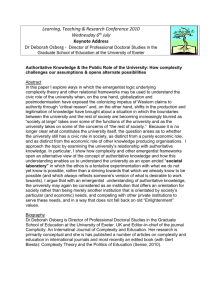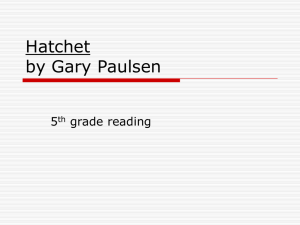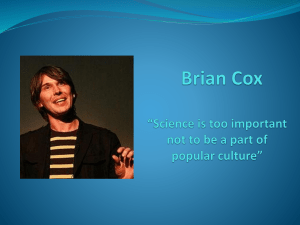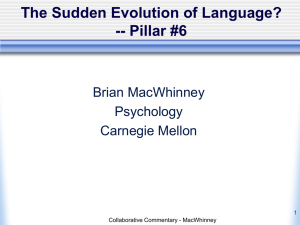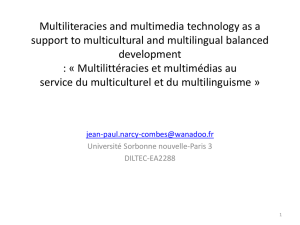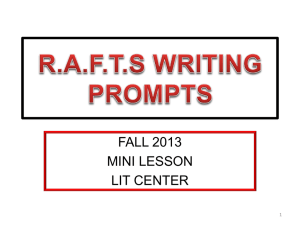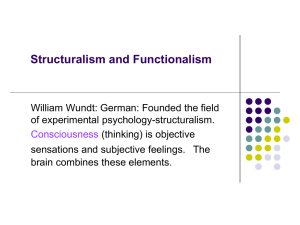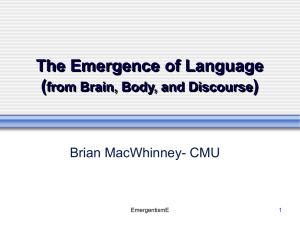TOK emergentism sam liberty
advertisement
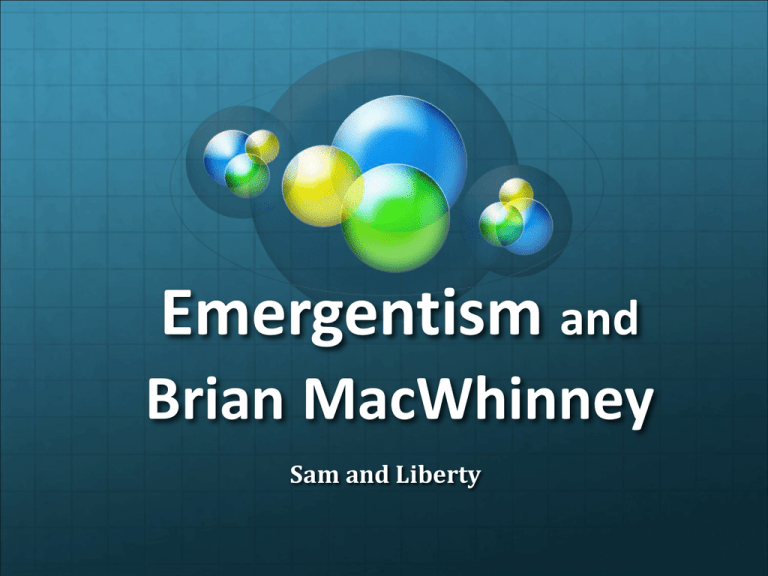
Emergentism and Brian MacWhinney Sam and Liberty Emergentism Emergentism is the belief in emergence, or the complexity that arises from the combination of simple components. As it pertains to language, emergentists believe that context plays a prominent role in the comprehension and acquisition of language. This context contains complexities that cannot be found in its written definition. Emergentist Systems In an emergentist system, such as language, the existence of the simple components that make up the complex system cannot be predicted beforehand. The components are created in reaction to pre-existing components. Even if someone had previous knowledge of the system, they could still not accurately predict the components before they emerge. Emergentist systems are governed by laws specific only to that system. Brian MacWhinney MacWhinney is a professor pof psychology and modern languagesl he has done numerous studies on how languages are developed and how people learn them. • He’s fluent in seven languages. He has also developed many new computer programs for performing psychological experiments. MacWhinney’s Competition Model The competition model is an emergentist theory for how both first and second languages are learned, developed by Brian MacWhinney and Elizabeth Bates. The competition model states that: Language is neither completely innate nor is it completely learned, but is a combination of both Words are merely meaningless symbols that have no relevance to people without proper context. Example: A refrigerator would not be the same if we weren’t accustomed to seeing it being used in a kitchen, to store food. Linguistic Functionalism Brian MacWhinney has also recently studied Linguistic Functionalism. Linguistic Functionalism is the idea that grammar and language have developed because of the human brain’s ability to shift the perspective from which one views an event. New ways of using grammar emerge in response to the need to describe and understand events and objects from the point of view of others. Works Cited P.B. Anderson (Ed.) (2000). Downward Causation. Aahus University Press. <http://hincapie.psych.purdue.edu/HHPTuckerG00-DC.pd> O'Connor, Timothy and Wong, Hong Yu, "Emergent Properties", The Stanford Encyclopedia of Philosophy (Spring 2009 Edition), Edward N. Zalta (ed.), URL = <http://plato.stanford.edu/archives/spr2009/entries/propertiesemergent/>. MacWhinney, Brian (2005). "A Unified Model of Language Acquisition". In Kroll, Judith; DeGroot, Annette. Handbook of bilingualism: Psycholinguistic approaches.. Oxford, UK: Oxford University Press. http://cls.psu.edu/podcasts.shtml (image)
